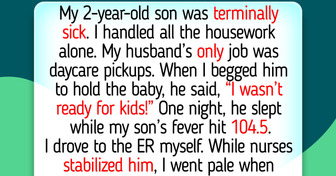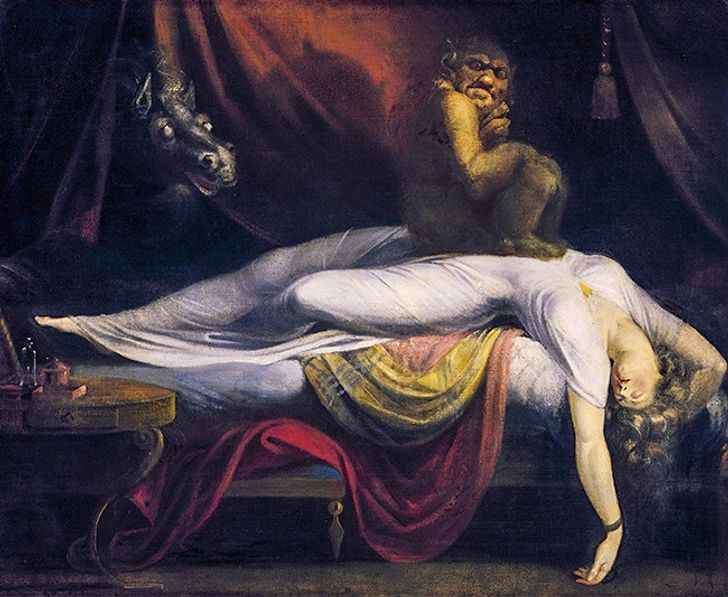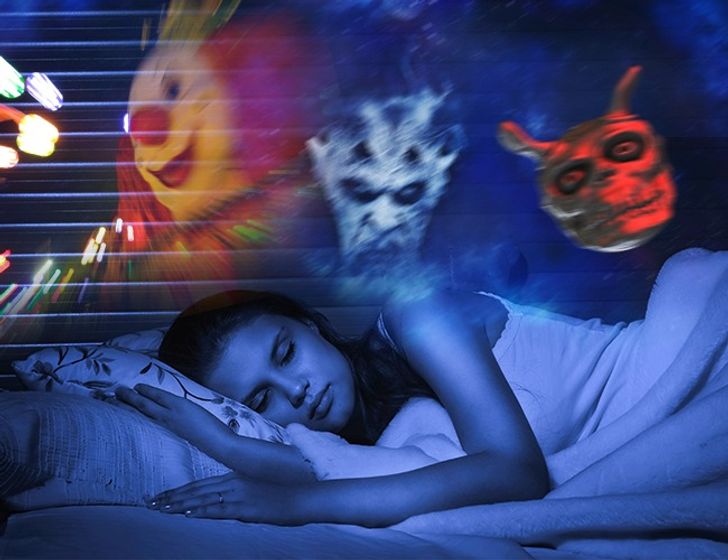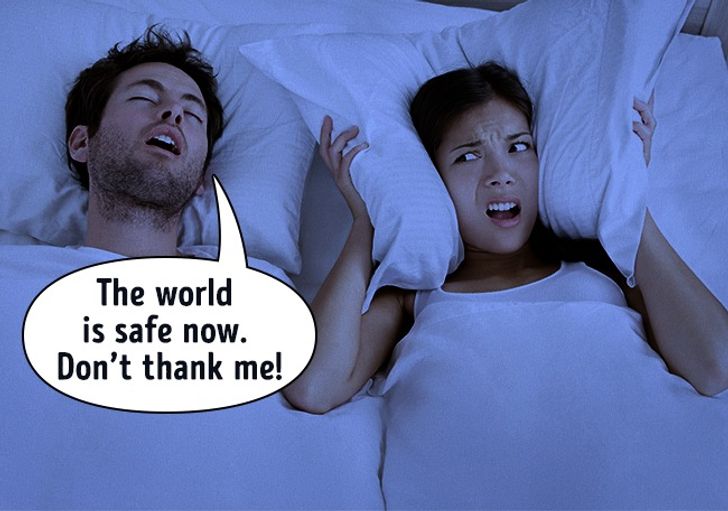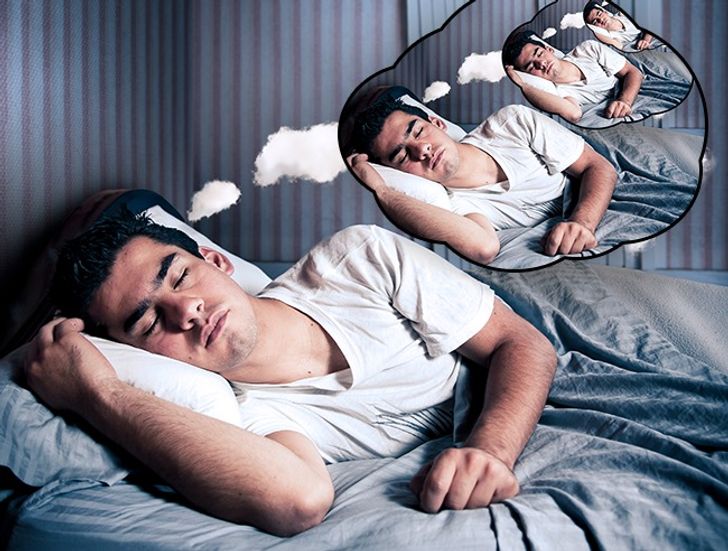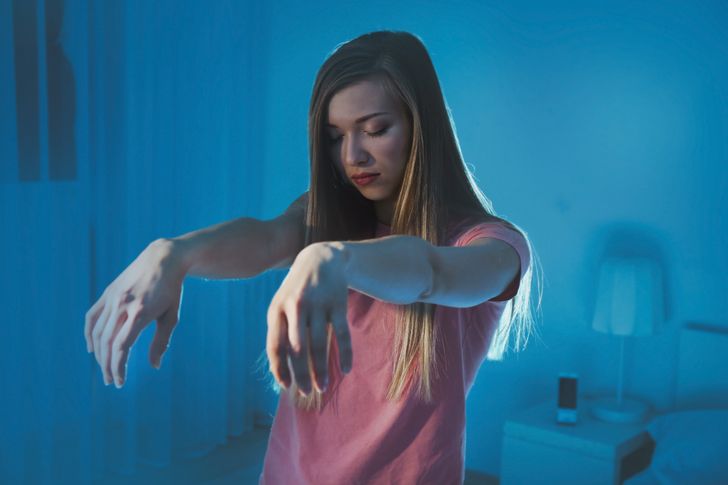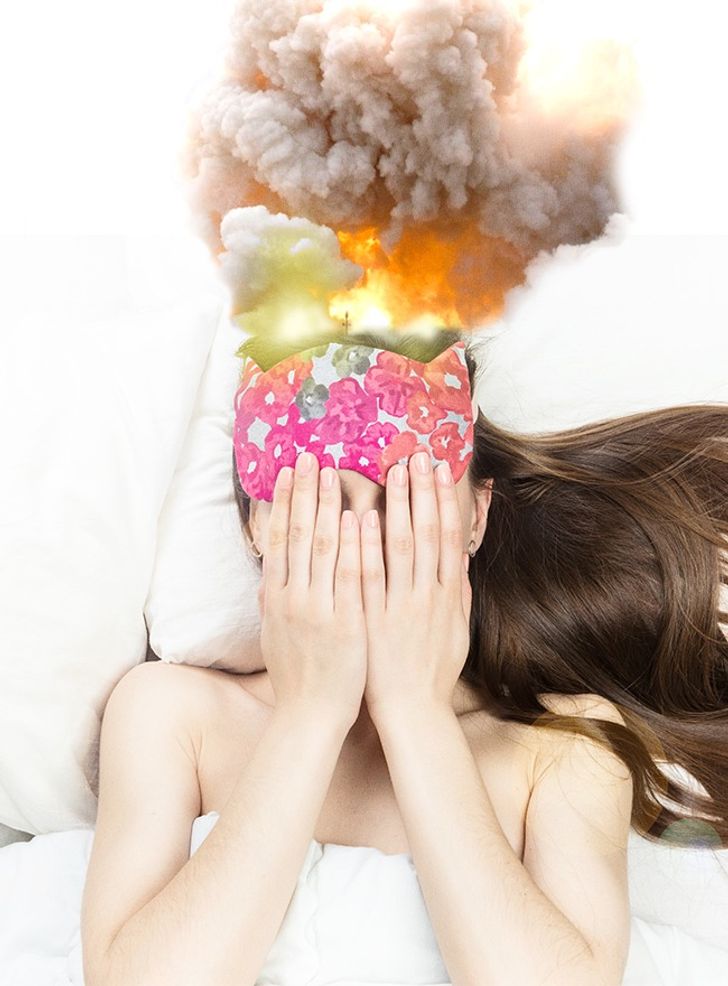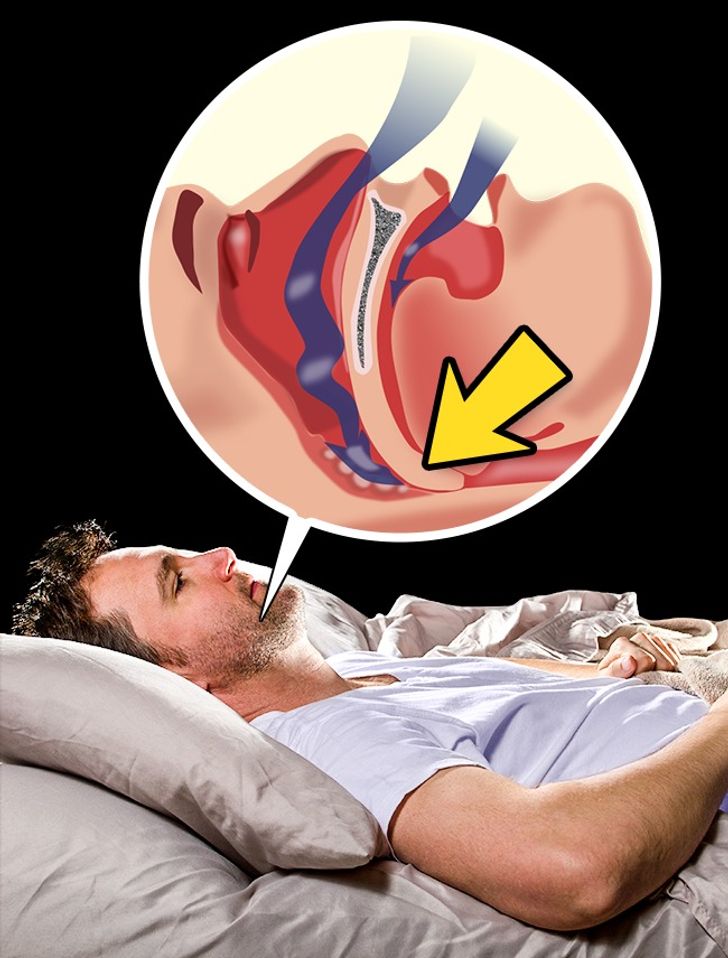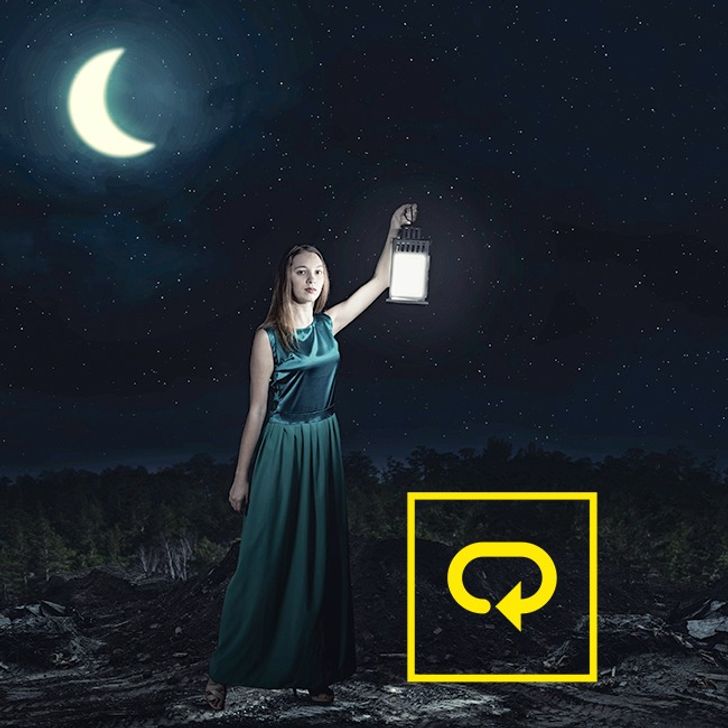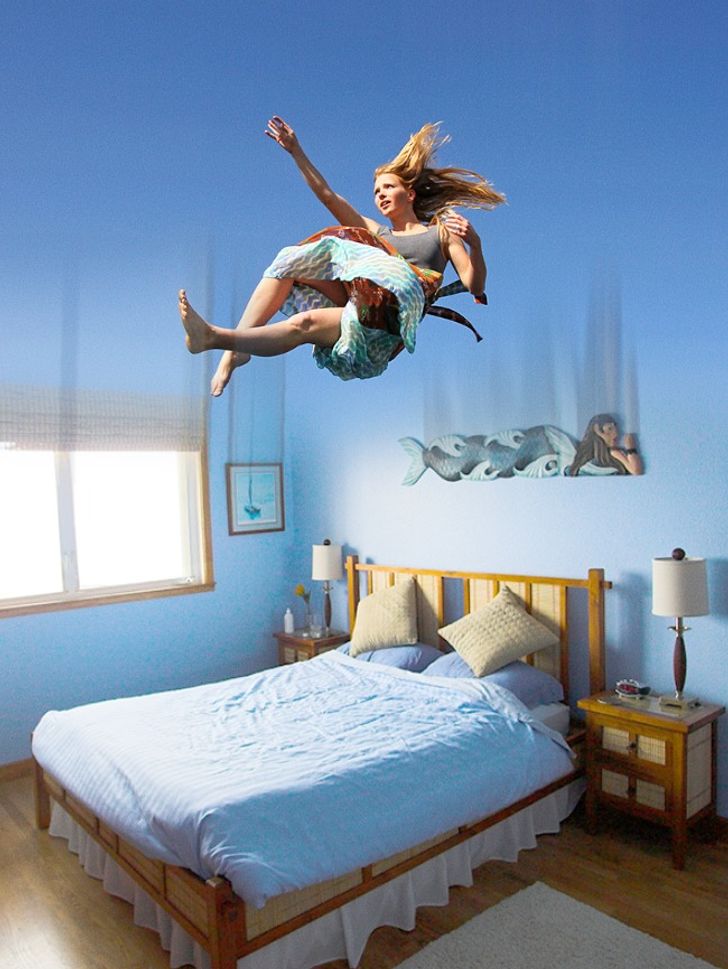The article starts correctly saying ''Bright Side decided to tell you about such experiences, which remain a mystery for Science to this day'' Yes it's still very much a mystery, so Bright Side doesn't know either..!!...But according to me the answer does not lie in the Dream but the reason behind the dream. Which can be different for different people....Consider your Brain as your Computer, It records all kind of stuff during the day, to the extent that at times it has an over load of wanted and unwanted information, thoughts, (good, bad & ugly). Consider a good part of it as kind of Viruses infesting the Brain.The Brain just like every other organ has a immune system or an inbuilt Anti-Virus that comes into action in the Night or when you are asleep, and resolves all kind of toxic and phobic thoughts which have entered the brain during the day, and are in fact very damaging to a person if allowed to pile up. As that can affect the sanity of a person, which is very impotent to be treated in time everyday, for his peace of mind. That's what the Dreams are all about. An Anti-Virus in Action..QED.:) Sorry for being unromantic..:)
11 Mysterious Things That Occur While You Sleep
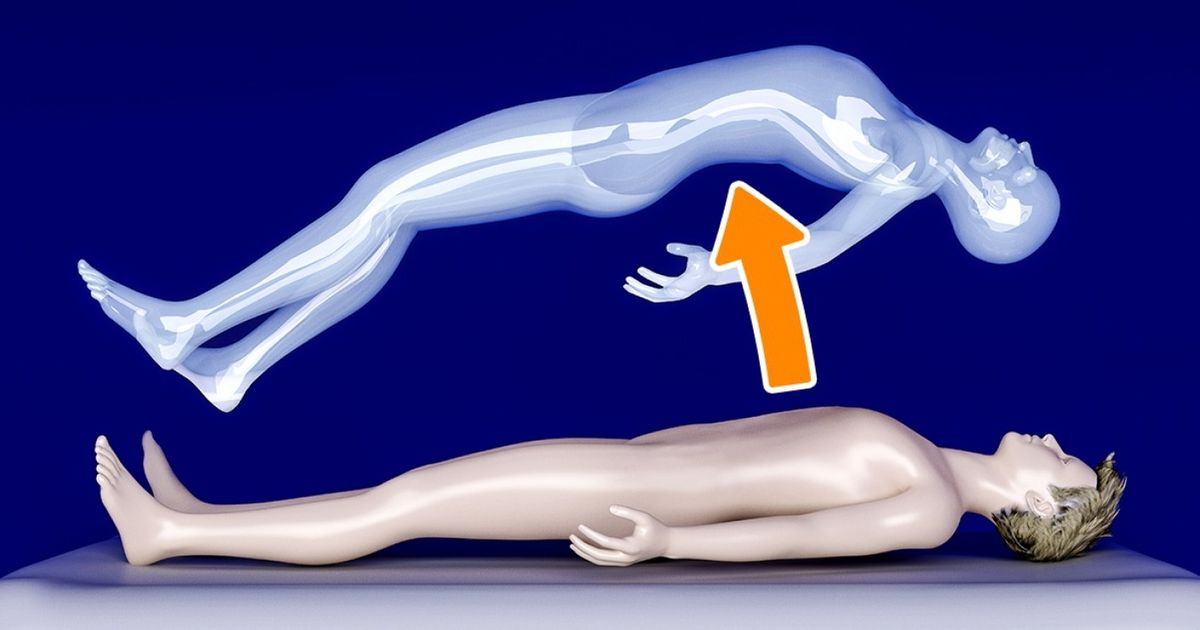
At night we’d like to sleep peacefully and restore energy. Nevertheless, it is difficult to find a person who has never encountered some strange and unpleasant sensations accompanying sleep.
Bright Side decided to tell you about such experiences, which remain a mystery for science to this day.
Sleep paralysis
How it feels: The person wakes up at night and cannot move. Added to this are frightening hallucinations and a feeling that there is someone else in the room. In antiquity, this state was associated with mischiefs of evil spirits.
Why it happens: Normally, when we fall asleep, we are paralyzed so that we don’t sleepwalk and such. With sleep paralysis, our muscles "turn off" when the brain is awake.
Approximately 7% of the population have experienced sleep paralysis at least once (source). They say this is more likely when sleeping on the back.
Hypnagogic hallucinations
How it feels: When a person is on the verge of sleeping but still awake, he sees weird pictures before his eyes. Often these are scary faces and fantastic creatures.
Why it happens: This is one of a few types of hallucination that mentally healthy people may have. Children have them more often (source), which could be the reason they don’t want to go to sleep. Such hallucinations may be due to stress or simply a good imagination. They can also appear if you go to bed drunk.
Sleep talking
How it feels: Usually, the person who suffers from somniloquy (a fancy term for sleep talking) has no idea about it. This condition is absolutely not dangerous psychologically, though a person with such a problem may worry about blurting out secrets.
Why it happens: Men and children are more prone to this (source), and the reason is stress. The person’s psyche is trying to resist what he or she does not agree with in reality.
A dream within a dream
How it feels: The person sees a dream, then wakes up, but strange things continue to happen to him. It turns out he was just dreaming that he woke up. This has been explored in the movie Inception. Upon the film’s success, many people reported having experienced this phenomenon.
Why it happens: Esotericists believe that if you have such a dream, this indicates your predisposition to spiritual practices. Official science can’t explain why this happens.
Sleepwalking
How it feels: This state is the opposite of sleep paralysis — the consciousness is asleep, but muscle paralysis does not occur. In their sleep, people can walk, clean, or even leave the house, which is often very dangerous. In the morning, they don’t remember anything.
Why it happens: Somnambulism occurs in about 4.6-10.3% of the population, with children affected more often (source). The cause is still unknown, as are methods of treatment.
Exploding head syndrome
How it feels: The person wakes up from a sensation of a loud explosion or a clap. Sometimes the sound seems deafening. It can be accompanied by an increasing buzz or a flash. The phenomenon is not dangerous, but it frightens people. Some think they have had a stroke.
Why it happens: This happens when, for some reason, there is a surge of neural activity in the areas of the brain responsible for processing sound (source). Sometimes the syndrome is coupled with insomnia or jet lag.
Sleep apnea
How it feels: Sleep apnea is a sudden stop of breathing in a dream. The person wakes up as a result. The quality of sleep decreases, the brain experiences oxygen starvation, and it becomes difficult to get enough sleep. Arterial pressure also fluctuates during an attack, which may cause heart problems.
Why it happens: During sleep, the pharynx muscles relax, which sometimes leads to blockage of the airways. Obesity, smoking, and old age increase the risk. Fun fact in a world of anxiety: one may alleviate it by playing the didgeridoo, an Australian wind instrument (source).
Recurring dreams
How it feels: Probably everyone has had strange recurring dreams, which constantly reproduce the same plot.
Why it happens: Psychologists believe our brain uses such dreams to pay attention to something we didn’t notice in our daily life. These stories will return until the situation is resolved (source).
Falling onto the bed
How it feels: Sometimes we feel like we’ve been thrown onto our bed from high up. We flinch and wake up. Sometimes before that, we dream that we are flying or stumbling and falling — a rather unpleasant feeling.
Why it happens: Sleeping is similar to dying — the heartbeat and breathing slow down, muscle tone is reduced. The brain "gets frightened," perceives this as a real death, and checks whether the person is alive, sending impulses to the muscles.
Out-of-body experience
How it feels: This is a neuropsychological phenomenon during which a person, half-asleep and half-awake, sees himself from a place outside his body. For mystics and occultists, this confirms the existence of the soul.
Why it happens: The phenomenon is very difficult to study. While scientists know that the illusion of getting out of the body does exist, it is not clear how it works and why it arises. It’s also unclear how to deal with this. Yet some know how to enter this state deliberately. They do so to expand the boundaries of their cognitive capabilities.
Sudden enlightenment during sleep
How it feels: Sometimes we can’t find a solution to a problem for a long time, and so we constantly think about it. And then, in a dream, the brain gives us a clue. Now the most important part is to remember it.
Dmitri Mendeleev, a Russian chemist, was obsessed with creating a periodic table of elements — and then he saw it in a dream. Something similar happened with the chemist August Kekulé when he dreamed of a formula for benzene.
Why it happens: Sometimes our subconscious already knows the answer, although it has not yet reached consciousness. During sleep, the subconscious is more active and could provide the insight. Sleep is great, but sometimes it comes with even more perks.
Comments
i had experienced the falling thing several times and every time it happened with me i felt that someone is throwing me under ground and suddenly i woke up with a astonished face
Falling onto the bed and recurring dreams have happened to me
Related Reads
I Refused to Be Humiliated in Front of My Own Family
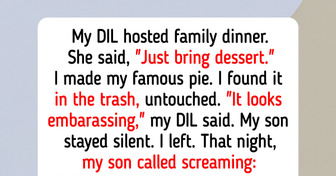
My MIL Tried to Humiliate Me at the Altar—By Morning, She Wasn’t Laughing

15 Moments That Prove Kindness and Mercy Are Quietly Saving the World
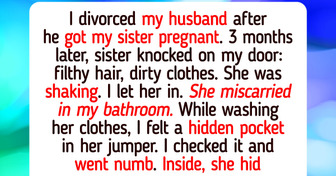
I Refused to Join a Work Call From My Honeymoon—I Froze the Entire Office
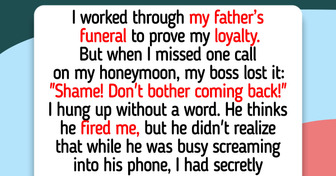
16 Shopping Stories That Prove a Trip to the Supermarket Can Be More Entertaining Than a Blockbuster Movie

I Refused to Talk to My Parents After They Chose My Ex-Wife Over Me

11 People Whose Small Acts of Kindness Turned Tears Into Smiles
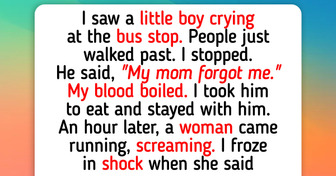
I Refuse to Return My Late Colleague’s Paycheck, Now His Widow Is Furious
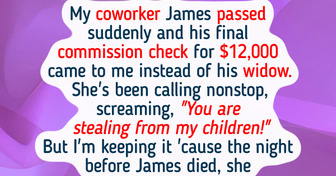
I Turned Down a Promotion and Got Fired—My Revenge Was Brutal

I Refused to Follow My Boss’s Dress Code—HR Had to Step In

10 Moments Where Kindness Didn’t Argue—It Acted

10 Moments of Superhuman Strength That Feel Like Winning the Olympic Games
